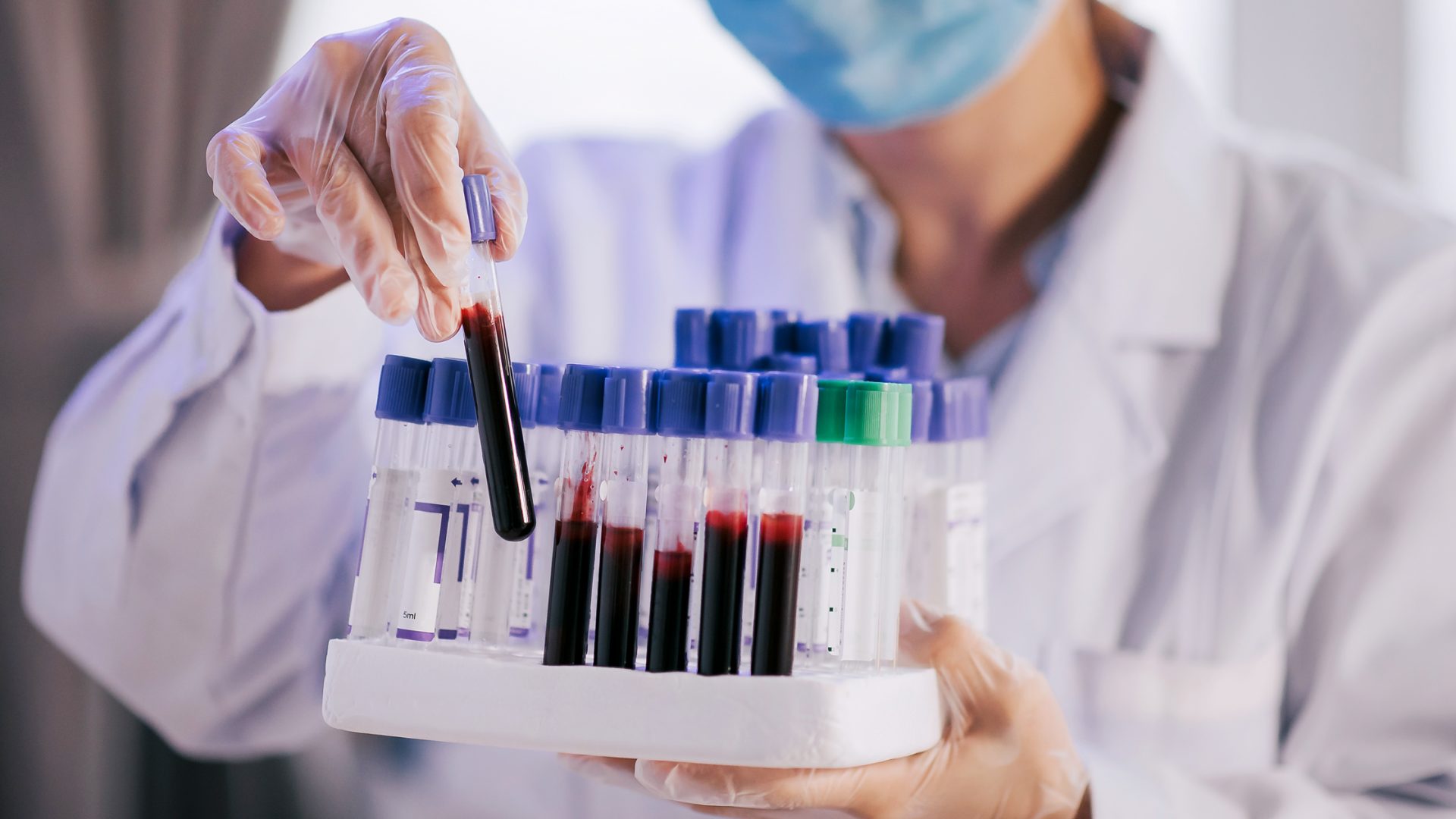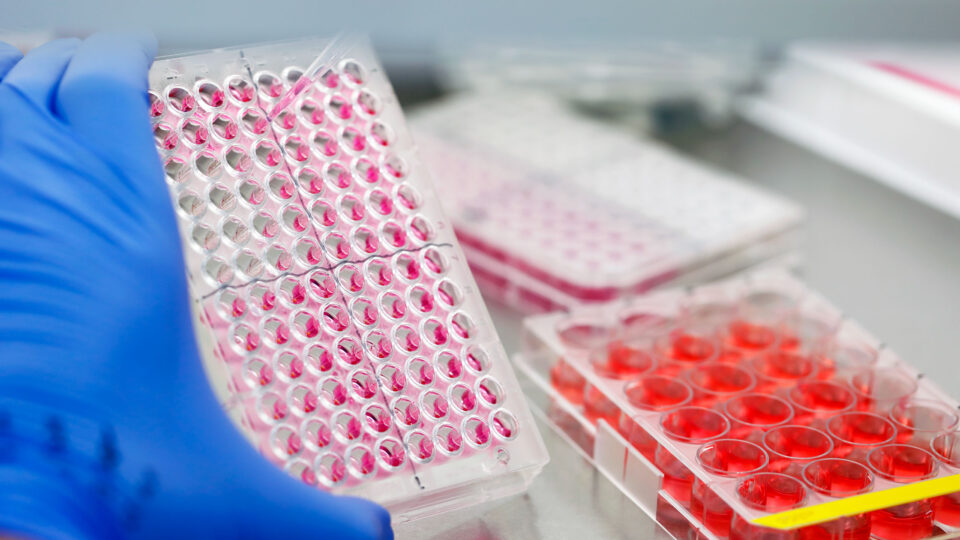A novel research test that detects changes in a panel of serum autoantibodies has the potential to predict which patients treated with adjuvant immunotherapies are likely to have their cancer recur or have severe immune-related adverse events, according to a new study published in Clinical Cancer Research.
Developed by investigators at NYU Langone Health’s Perlmutter Cancer Center, the test may help physicians and patients make more informed treatment decisions.
“The fact that we identified a composite signature of 283 autoantibodies shows that the biological phenomena underlying recurrence and toxicity are complex and cannot be driven by 1 or 2 biomarkers.”
Iman Osman, MD
“The fact that we identified a composite signature of 283 autoantibodies shows that the biological phenomena underlying recurrence and toxicity are complex and cannot be driven by 1 or 2 biomarkers,” says Iman Osman, MD, senior author of the study and the Rudolf L. Baer Professor of Dermatology in the Ronald O. Perelman Department of Dermatology and a member of Perlmutter Cancer Center.
Revealing Hidden Susceptibility
The current work focused on patients with melanoma who received adjuvant therapy with either of two leading checkpoint inhibitors, nivolumab or ipilimumab, or a combination of the two agents, as part of large phase 3 clinical trials.
The research team suspected that certain patients might have higher levels of key autoantibodies before treatment, but not enough to be detected clinically as autoimmune disease. This hidden susceptibility would then be triggered by checkpoint inhibitors to cause immune-related adverse events.
A Score-Based Prediction System
For the study, the researchers obtained blood samples from 950 patients enrolled in either CheckMate 238 or CheckMate 915, both phase 3 randomized controlled trials of adjuvant checkpoint inhibitors in patients with advanced melanoma. Tumors in these patients had been surgically removed, and blood samples collected were before they received treatment.
The new research test employs a protein microarray containing over 21,000 proteins, covering more than 81 percent of the human proteome. When an antibody in a blood sample recognizes any of the proteins present on the microarray, those spots glow with the signal intensifying as the concentration of antibody increases.
Based on the newly identified panel of autoantibodies, and using statistical modeling, co-senior author Judy Zhong, PhD, a professor of population health, developed a score-based prediction system for each treatment. Patients with a high autoantibody recurrence score were found to have quicker disease return than those with a lower score.
Similarly, patients with higher pretreatment autoantibody toxicity scores were significantly more likely to develop severe immune-related adverse events than those with lower scores.
Importantly, the autoantibody recurrence signature outperformed a clinical model that is the current benchmark for identifying patients likely to respond to immunotherapy.
“A unique feature of this panel is that it can simultaneously risk-stratify patients according to their likelihood of experiencing recurrence and developing severe immune-related adverse events.”
Judy Zhong, PhD
“A unique feature of this panel is that it can simultaneously risk-stratify patients according to their likelihood of experiencing recurrence and developing severe immune-related adverse events,” says Dr. Zhong.
Further Testing Ahead
Although the current findings support the predictive utility of the autoantibody scores by comparing them with data from clinical trials, more research is needed to validate the value of such a test in the clinic, and to better understand the relationship between autoantibodies, recurrence, and toxicity.
NYU Langone researchers plan to test the predictive value of autoantibody signatures in patients with the other cancer types for which checkpoint inhibitors are currently approved for use.







